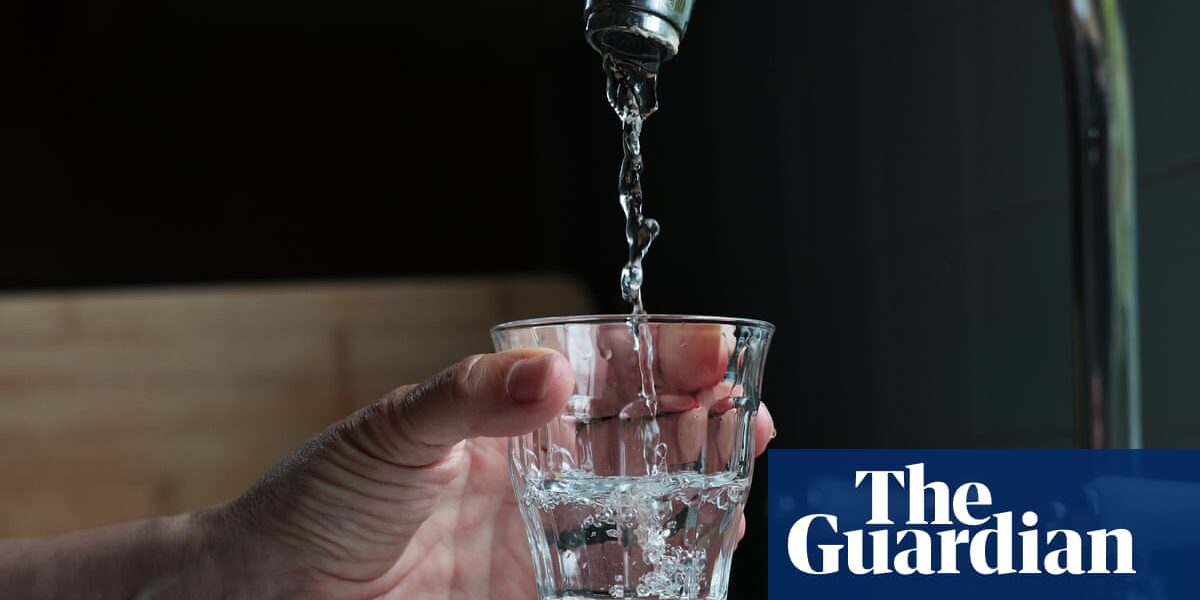Thames Water urged to ‘get a grip’ on testing water supply after illness outbreak

Steve Reed, Labour’s shadow environment secretary, has urged Thames Water to “get a grip” and test treatment works “urgently” after it emerged over the weekend that the company had tested the water at only one property.
Over the last two weeks, dozens of people in Beckenham, south-east London, have reported becoming unwell with diarrhoea and vomiting. The symptoms in most cases have lasted for an unusually long time – up to two weeks. They have also been severe, with multiple people hospitalised, including an eight-year-old boy.
Last Wednesday, Thames Water tested the water at the property of one person who had become unwell; the results came back clear. Since then others who are unwell in Beckenham have asked for a test. Thames initially said that since its initial tests came back clear, it did not need to conduct further tests. Thames has also not tested the wider supply or the treatment facilities specifically as a result of this suspected outbreak.
Syreeta Brown lives in Beckenham and her family has been unwell with diarrhoea and vomiting. She and her daughter experienced mild symptoms, but her eight-year-old son has been severely unwell for 12 days and was briefly hospitalised.
Thames Water rebuffed her requests to test her water. But after being contacted by the Guardian, Thames sent a technician to take samples from her tap on Monday.
“Thames Water’s response has felt very dismissive,” she said. “We’ve got two kids so of course we have dealt with diarrhoea and vomiting over the years but this was just not normal. We went to hospital after I went downstairs to discover he threw up, and was too weak to call for help. He was downstairs, he was lying in it and couldn’t call for help. Kids get bugs, this just felt different.”
She first tried calling the water company, but could not get through. She then used their WhatsApp service, through which operators told her not to worry and refused to test her tap water because they had already tested one property in the area.
She said: “When I had seen that they tested only one property, I thought why would you test just one property? It just seems a bit odd.”
Others who live in the area have said they have found it difficult to get a response from Thames Water when they have suffered from illness and asked for a test.
Reed said: “Thames Water must get a grip, be honest with the public and test treatment works in the area urgently.”
Speaking about the sewage scandal more broadly, Reed said that a Labour government would put the water companies under tough special measures. “We will give the regulator new powers so law-breaking water bosses face criminal charges and block their multimillion pound bonuses until they clean up their toxic filth.”
The Drinking Water Inspectorate has urged water companies to test thoroughly when asked to do so by customers, and told concerned people to contact them if their provider is not testing sufficiently.
A DWI spokesperson said: “Water companies are required to adhere to the water supply (water quality) regulations 2016. These regulations include statutory responsibilities for sampling drinking water, investigating concerns identified in the water supply system and reporting to the Drinking Water Inspectorate. This includes a requirement for water companies to investigate and take steps to determine if and why water quality is or is not meeting the specified requirements. If consumers are not satisfied with the response provided by their water company, they can contact the Drinking Water Inspectorate, who will investigate the company response as a complaint.”
The UK Health Security Agency confirmed it was monitoring connections between people complaining of illnesses locally, but that it had not so far found enough evidence to put out an alert.
after newsletter promotion
Scientists said the reported symptoms sounded like cryptosporidium, or another waterborne disease, but that there could be other reasons for the symptoms.
Paul Hunter, a medicine professor from the University of East Anglia, said: “Cryptosporidium is the top, vomiting does occur but is not usually pronounced. You rarely see blood in the diarrhoea. There is a lot of crypto around at present. Giardia is another possibility, again watery diarrhoea no blood, but the characteristic feature is bloating and flatulence. They also tend to report abdominal pain. Salmonella infections can last quite some time as well. Stool can be watery or bloody, people may have a fever and may or may not report abdominal pain.”
Tim Walsh, professor of medical microbiology at the University of Oxford, added: “This will be food-/water-borne outbreak and is likely to have come from a common source. Should be easy to track down with decent retrospective epidemiology data and microbiology.”
This month, unsafe drinking water led to more than 100 cases of cryptosporidium in the Brixham area of Devon.
About 17,000 households and businesses were told by South West Water not to use their tap water for drinking without boiling and cooling it first after cryptosporidium was detected in the water supply.
A Thames Water spokesperson confirmed there has been no specific testing of the treatment centres or local works as a result of the concerns from customers, but added that more tap tests have been done. They are still waiting for some results.
They said: “We can confirm there are no water quality concerns in the central Sydenham water zone. We take all customer complaints of illness very seriously and have processes in place for investigating any contacts from customers.
“Our technicians have collected samples from a number of properties as part of our process. Initial on-site testing has not indicated any aesthetic [taste, smell, look] issue with the water. Samples were also collected for laboratory analysis and of the results we have received back, show no concerns.”
Source: theguardian.com

